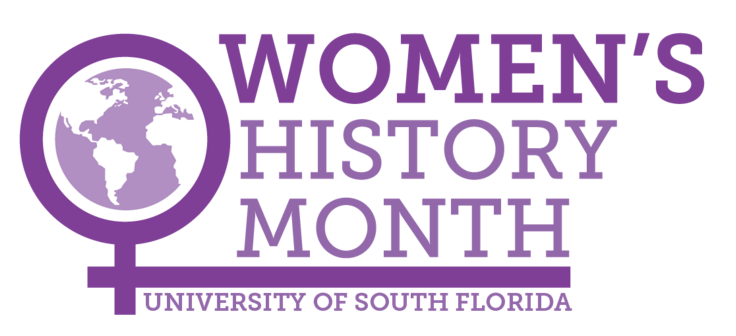Dr. Kathryn Arthur has a unique perspective on women’s history – she’s working on rewriting it.
Arthur teaches anthropology at USF St. Petersburg and is nationally recognized for accomplishments within in the field.

USFSP Anthropology Professor Dr. Kathryn Arthur gives a talk on her findings from Ethiopia to an audience in the Poynter Corner.
She was granted the Gordon R. Willey award in 2012 for her article published in American Anthropologist, entitled “Feminine Knowledge and Skill Reconsidered: Women and Flaked Stone Tools.”
And in summer 2012, the archeological team led by Arthur and her husband John, who is also an anthropology professor at the university, discovered the first pure ancient African genome during an excavation in Ethiopia. The finding was officially confirmed in late 2015.
USFSP’s Office of Multicultural Affairs has been holding events at the university throughout March, Women’s History Month, to showcase some of the key issues women face.
And on March 23, Arthur was asked to present her findings from her article published in American Anthropologist at the Nelson Poynter Library.
Arthur referred to the Konso, a present-day Ethiopian community, as an example of women being skilled toolmakers.
In Konso culture, tasks related to the production and grinding down of materials is considered feminine, she said. Women find and craft their own stones for scraping hides, which are used to trade for food and other goods.
According to Arthur, most literature on ancient history portrays women as nurturers and gatherers, while the men were out crafting tools and hunting away from the nest.
This results in archaeologist’s automatically attributing tools found during excavations to men – not women.
But Arthur flipped the notion on its head by drawing between evidence in historical records and techniques used by modern-day women.
She said her research has not been well-received by everyone.
During a conference, Arthur said she was giving the same presentation when a male peer walked out without saying a word.
This historical research bias exemplifies why society needs Women’s History Month, Arthus said.
Since 1987, March has been celebrated as Women’s History Month after a joint resolution was issued by Congress that President Reagan authorized as law.



